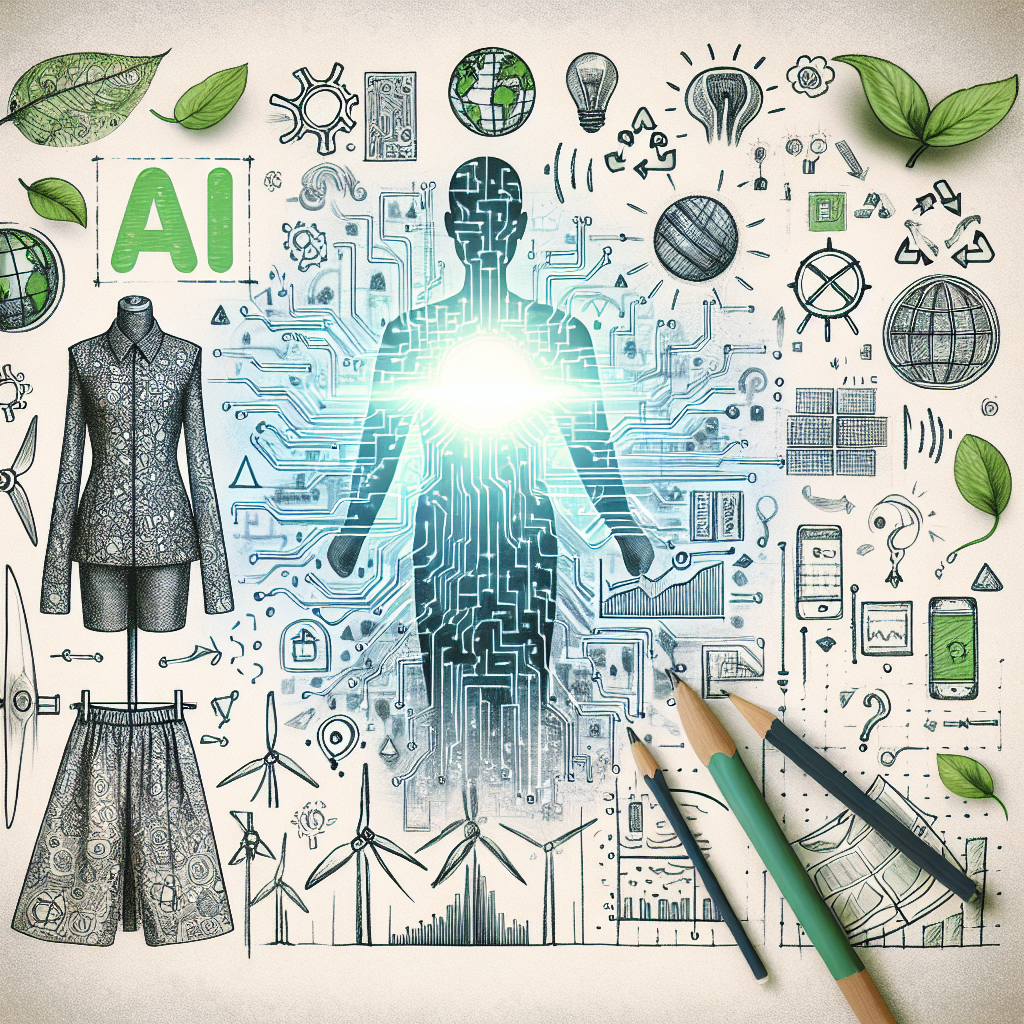In recent years, there has been a growing interest in sustainability within the fashion industry. With fast fashion brands churning out new collections at an alarming rate and consumers becoming more conscious of the environmental impact of their purchases, the need for sustainable fashion has never been more apparent. One of the key drivers of this shift towards sustainability is the advancement of technology, particularly artificial intelligence (AI).
AI-powered fashion sustainability represents a new frontier in the industry, combining cutting-edge technology with eco-friendly practices to create a more sustainable and ethical fashion ecosystem. From supply chain management to design and production, AI is revolutionizing the way fashion brands approach sustainability. In this article, we will explore the role of AI in driving fashion sustainability, its benefits, challenges, and potential impact on the industry.
The Role of AI in Fashion Sustainability
AI is being used in various aspects of the fashion industry to improve sustainability practices. One of the key areas where AI is making a significant impact is in supply chain management. By analyzing data from various sources, AI can help brands optimize their supply chains, reduce waste, and improve efficiency. For example, AI-powered algorithms can predict demand for certain products, enabling brands to produce only what is needed and avoid overproduction. This not only reduces waste but also minimizes the carbon footprint of the brand.
AI is also being used in design and production to create more sustainable products. By analyzing data on materials, processes, and consumer preferences, AI can help designers create eco-friendly collections that are both stylish and sustainable. For example, AI can recommend alternative materials that are more sustainable, suggest ways to reduce waste in the production process, and even predict trends to create products that are in high demand.
Benefits of AI-Powered Fashion Sustainability
There are several benefits to incorporating AI into fashion sustainability practices. One of the key benefits is the ability to improve efficiency and reduce waste. By using AI to optimize supply chains and production processes, brands can minimize their environmental impact and save costs. AI can also help brands make more informed decisions about materials, processes, and design, leading to more sustainable products that meet consumer demand.
Another benefit of AI-powered fashion sustainability is the ability to drive innovation. AI can help designers push the boundaries of creativity and explore new ways to create sustainable fashion. By analyzing data and predicting trends, AI can help brands stay ahead of the curve and create products that resonate with consumers. This can lead to a more competitive and sustainable fashion industry overall.
Challenges of AI-Powered Fashion Sustainability
While AI has the potential to revolutionize fashion sustainability, there are also challenges that need to be addressed. One of the key challenges is the lack of transparency in AI algorithms. As AI becomes more prevalent in the fashion industry, there is a concern about how algorithms are being used and whether they are truly driving sustainability. Brands need to be transparent about their use of AI and ensure that it is being used ethically and responsibly.
Another challenge is the cost of implementing AI technology. While AI can help brands save costs in the long run, the initial investment can be significant. Small and medium-sized brands may struggle to afford AI technology, limiting their ability to adopt sustainable practices. It is important for brands to consider the long-term benefits of AI and invest in technology that will help them achieve their sustainability goals.
Potential Impact on the Fashion Industry
The potential impact of AI-powered fashion sustainability on the industry is significant. As more brands adopt AI technology to drive sustainability practices, we can expect to see a shift towards more eco-friendly and ethical fashion. Consumers are becoming increasingly conscious of the environmental impact of their purchases, and brands that prioritize sustainability are likely to attract a loyal following.
AI can also help brands differentiate themselves in a competitive market. By leveraging technology to create innovative and sustainable products, brands can stand out from the crowd and appeal to a growing segment of consumers who prioritize sustainability. This can lead to increased brand loyalty, higher sales, and a stronger reputation in the industry.
FAQs
Q: How is AI being used in supply chain management in the fashion industry?
A: AI is being used in supply chain management to optimize processes, reduce waste, and improve efficiency. By analyzing data on demand, production, and materials, AI can help brands make more informed decisions about their supply chains and minimize their environmental impact.
Q: What are some examples of AI-powered sustainable fashion practices?
A: Some examples of AI-powered sustainable fashion practices include using AI to predict consumer trends, optimize production processes, and recommend alternative materials. Brands are also using AI to create personalized products and reduce waste in their supply chains.
Q: What are the benefits of AI-powered fashion sustainability?
A: The benefits of AI-powered fashion sustainability include improved efficiency, reduced waste, and increased innovation. By using AI to optimize processes and design eco-friendly products, brands can create more sustainable fashion that meets consumer demand.
Q: What are some challenges of implementing AI technology in the fashion industry?
A: Some challenges of implementing AI technology in the fashion industry include the lack of transparency in algorithms, the cost of technology, and the need for skilled professionals to manage AI systems. Brands need to address these challenges to ensure that AI is being used ethically and responsibly.

